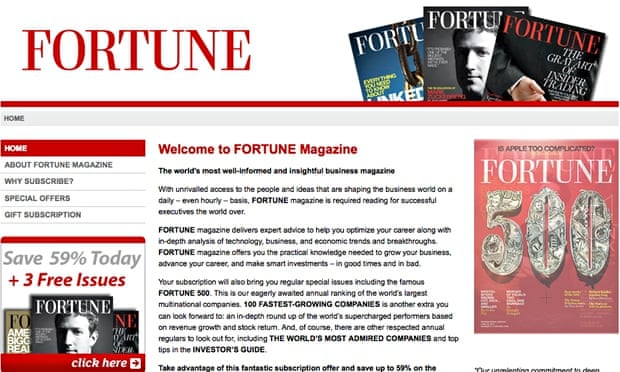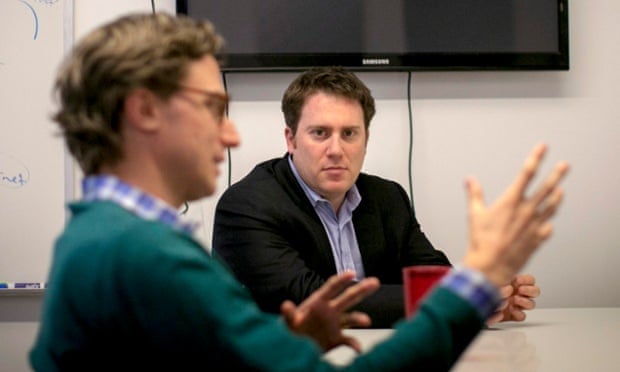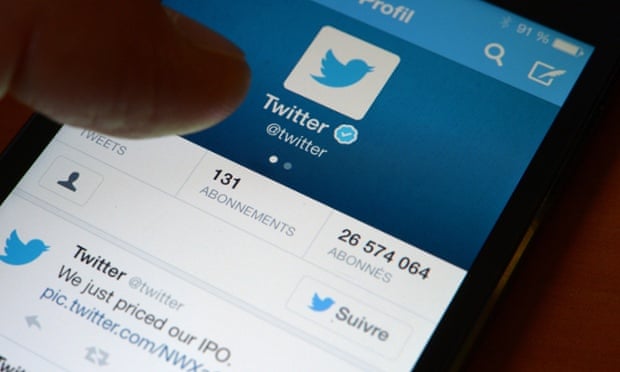- 12/09/14 Fault in our stars,
- 12/09/14 Petition for Obama
- 12/09/14 Top 100 Youtube Channels
- 15/09/14 YouTube stars and Facebook,
- 15/09/14 Game:Destiny- huge profit,
- 15/09/14 iPhone 6 release
- 22/09/14 Sexism at freshers week,
- 22/09/14 website: Alibaba worth more than Google?
- 26/09/14 Twitter targets film advertising,
- 26/09/14 Problems with iPhone 6
- 06/10/14 Sky ‘saddened’ over death of alleged McCann troll
- 08/10/14 UK viewers ‘spend five hours a week viewing TV, clips and films online’
- 08/10/14 BBC iPlayer catch-up window extended to 30 days
- 08/10/14 Last.fm made loss of £2.1m last year
- 10/10/14 Cassetteboy parodies
- 13/10/14 Can Twitter make money out of breaking news or is it a PR platform?
- 23/10/14 Twitter changes: 20 hits and misses from the social network's history
- 23/10/14 Is UKIP winning on Facebook and Twitter?
- 23/10/14 Facebook pays no UK corporation tax for a second year
- 23/10/14 Media jobs website Gorkana sold to Cision in £200m deal
- 7/11/14 John Lewis christmas advert
- 7/11/14 get over newspapers dying out
- 17/11/14Cost of pay for TV channels
- 17/11/14Facebook introducing 'Facebook for Work'
- 23/11/14 Social media to get a job
- 23/11/14 Print in decline
- 04/12/14 Twitter unveils new system for reporting abuse
- 04/12/14 Google and Facebook dominate digital market
- 04/12/14 Tesco joins retail stampede -social media
- 04/12/14 Cancer research trends
- 05/12/14 More than half of ads are digital
- 05/12/14 Twitters reaction to politics
- 18/12/14 Reading print bids a farewell to print
- 18/12/14 220 Journalists jailed
- 03/01/15 Who’s taking control this year? Google, BBC, Facebook, or even North Korea?
- 03/01/15 From YouTube to Facebook – will video be the one to watch in 2015?
- 03/01/15 The virtues of Vice: how punk magazine was transformed into media giant
- 03/01/15 Arrested over twitter threats
- 12/01/15 Developers made $10bn from iOS apps in 2014
- 16/01/15 Mark Zuckerburg defends Facebook
- 16/01/15 social media doesnt cause stress
- 16/01/15 BBC news online to overhaul website and app
- 18/01/15 BuzzFeed launches its own 'public chat' channel in messaging app Viber
- 18/01/15 Using Facebook at work
- 24/01/15 Social engagement now more important than TV ratings, says Fremantle boss
- 24/01/15 Twitter encourages 'verified' users to stop posting photos from Instagram
- 29/01/15 Seven things we learned from Facebook's latest financial results
- 29/01/15 Bloomberg switches off comments in website redesign
- 08/02/15 Twitters latest financial results
- 08/02/15 Snapchat helps Daily Mail and Vice Media get on message with youngsters
- 20/02/15 Mail online increased browsers online
- 21/02/15 Embrace social media stars, they can work wonders for your brand
- 21/02/15 Spanish politicians try to woo voters over WhatsApp
- 21/02/15 Google to launch YouTube subscription service without ads
- 05/03/15 vice apprenticeship
- 05/03/15 Twitter tries to end online abusers
- 13/03/15 BBC teams up with Google to launch digital revolution for young people
- 13/03/15 Buzzfeed live streams interview with David Cameron
- 22/03/15 Twitter- Jeremy Clarkson petition
- 22/03/15 Mail online and Guardian only UK titles to increase audience
- 23/03/15 Women killed herself after being doorstepped for trolling
- 10/04/15 Google interested in buying Twitter
- 10/04/15 Democracy will die due to dying journalism
- 10/04/15 Buzzfeed denies deleting articles to appease editors.
- 10/04/15 Vlogs are an insight to peoples lives
- 10/04/15 Fortune magazine takes on six former GigaOm journalists
- 18/04/15 social media elections
- 18/04/15 Is online video the saviour of fragmented digital marketing?
- 23/04/15 Instagram for businesses
- 26/04/15 Why Europe needs a digital regulator
Monday, 27 April 2015
NDM Summary
ndm
Why Europe needs a digital regulator
This article is about how the European Commissioner of Digital Science and Society, called for ‘a central EU-wide body with the power to monitor platforms’ use of data’.
- Shouldn’t we have some recourse if Facebook decides to manipulate an election, or Google disappears a favourite firm from its all-important rankings?
- In the United States, competition regulators have largely shrugged. They claim to be monitoring big firms’ behaviour, but they lack the technical expertise to do so.
- journalist Peter Maass noted, “The agency can take companies to court, but its overworked lawyers don’t really have the time to go the distance against the bottomless legal staff in Silicon Valley.”
- The new economy demands a new regulatory body, with the ability to continually monitor the law-like power now assumed by major digital platforms to themselves.
- Presently, the focus is on how a behemoth like Google might manipulate search results to strangle would-be competitors before they can reach critical mass.
- Europe can’t expect its digital talent to take on the Googles, Facebooks, Amazons and Apples without some assurance that law will prevent the behemoths from handing them an offer they can’t refuse: be acquired, pay hefty fees for ads or placement, or risk total obscurity.
Thursday, 23 April 2015
ndm
http://www.theguardian.com/small-business-network/2015/jan/13/how-use-instagram-promote-business
Snap happy: how to use Instagram

This article is about how small businesses can use the social media site Instagram to promote themselves.
Snap happy: how to use Instagram

This article is about how small businesses can use the social media site Instagram to promote themselves.
- Instagram is the social media tool of choice – and it’s easy to see why. The app has built up such a strong following it’s now more popular than Twitter, with monthly users topping 300 million.
- SMEs have quickly succumbed to Instagram’s charms, posting creative daily shots of their own brand and garnering thousands of fans while doing so. Premium womenswear boutique Black White Denim joined Instagram six months ago and has quickly usurped other social networks to become owner Jo Davies’ favourite platform.
- For many businesses owners, Instagram has not only catapulted brand awareness but also acted as a powerful sales driver. “Instagram makes a big difference to our business,” says Alienor Falconer, director of The Bright Company, a sleepwear and bedding brand for babies and young children.
Monday, 20 April 2015
ndm
http://www.theguardian.com/media-network/2015/apr/16/online-video-digital-marketing

Is online video the saviour of fragmented digital marketing?
- Fragmentation and complexity has, in my opinion, always been the single biggest barrier to digital marketing’s advancement. Brand managers for whom communications is often just a small slice of their daily workload are understandably put off when a digital expert rolls up explaining the latest complexities and technical capabilities.
- Video promises to be the great unifier – a simple, well understood format that can spread itself across most major digital media channels, delivering believable return on investments in the process.
- One thing that is clear is that online video has matured hugely over the past 18 months and along with it marketers’ attitudes.
- Unfortunately the waters of online video aren’t quite as transparent as one might hope. The content might potentially be the same but there’s a world of forced pre-rolls, skippable true views, in-banner video and auto-play (or even auto-preview) posts to discover.
Sunday, 19 April 2015
ndm
http://www.theguardian.com/politics/2015/apr/17/who-is-winning-the-election-battle-on-social-media

Who is winning the election battle on social media?
This article is about consumers taking part with the election through social media.
- Though successive elections since the mid noughties have been described as the first to be contested on social media, the coming poll on 7 May has seen the political parties and hopeful candidates engage with Facebook, Twitter,Instagram and other platforms like never before.
- The party’s official Twitter account @uklabour is also way ahead in terms of Twitter mentions (with 388,109 tweets and retweets), again with @ukip second (212,418) and @conservatives third (158,158). Notably, the three politicians whose individual Twitter accounts make the top 10 mentions list are @nigel_farage, @ed_miliband and the Plaid Cymru leader @leannewood.
- Precise details of each party’s organised campaign - and the amount they are spending on them - are difficult to come by, but in a measure of the importance of social media to the campaigns, it was reported earlier this year that the Conservatives have dipped into their considerable election war chest to spend more than £100,000 a month on Facebook for advertising and to secure paid-for “likes”. The BBC suggested Labour was directing its resources elsewhere, with an estimated spend of less than £10,000 a month on its own Facebook presence.
This is good for engaging people with politics, especially the younger generation as they are the main consumers of social media.
Sunday, 12 April 2015
ndm
http://www.theguardian.com/media/2015/apr/08/fortune-magazine-takes-on-six-former-gigaom-journalists

Fortune magazine takes on six former GigaOm journalists

This article is about Fortune hiring six journalists from a tech site which recently closed down.
- “Fortune has always covered how technology is changing the workplace – 85 years of publishing prove it – but things are changing faster and more dramatically than ever before.
- Time CEO Joe Ripp had reportedly been in negotiations to buy GigaOm before deciding to hire the journalists, many of whom were senior writers for the site.
- The writers joining Fortune will focus on the magazine’s digital platforms but will also contribute to the print magazine and appear at Fortune events.
- Fortune has been seeking to increase the amount of content it produces to attract more visitors since it lost referrals from CNN when Time Warner split its broadcast and publishing divisions into separate companies.
ndm
http://www.theguardian.com/technology/2015/apr/12/tanya-burr-vlogging-blogging-youtube

Tanya Burr: ‘Vlogs are like being inside someone’s house. It’s an insight into people’s lives’
This article tells us about how Vlogs introduce the audience inside the lives of vloggers.
- what first gave you the idea to start vlogging?Well, back in 2009, I loved the idea of being a makeup artist, so went to college in my home town, Norwich, to learn. They’d just started uploading tutorials on to the internet, mainly to help students – how to do a smoky eye, stuff like that. They told me I should start a YouTube channel as a creative outlet, to practise makeup looks and get people’s opinions. That’s how it all started.
- You have 2.9 million YouTube subscribers, 1.6 million followers on Instagram and 1.3 million on Twitter. What’s the secret?I really don’t know. In the comments, people say I make them feel good, I’m relaxing to watch and they like my positivity and outlook on life
Vlogs are a way to make people relate to them which is good for social media as this is how you gain attention.
ndm
http://www.theguardian.com/media/2015/apr/11/buzzfeed-denies-deleting-critical-articles-to-appease-advertisers

BuzzFeed denies deleting critical articles to appease advertisers

This article is about Buzzfeed lying about deleting articles to please advertisers.
- The articles were removed because of editorial concerns, the site’s editor-in-chief Ben Smith told staff in an email on Friday. He said both had since been reinstated because their deletion had been against BuzzFeed’s policy.
- Both of the deletions, Smith wrote, “involved the same thing: my overreaction to questions we’ve been wrestling with about the place of personal opinion pieces on our site”.
- An update to that article included a denial from BuzzFeed that advertising concerns had anything to do with the decision to delete.
Even though Buzzfeed face criticism for their actions they are allowed to delete or post as they please.
ndm
http://www.theguardian.com/media/greenslade/2015/apr/07/democracy-will-die-if-professional-journalists-go-to-the-wall

Democracy will die if professional journalists go to the wall

This article is about how journalism is dying as there is no need for it anymore due to technology.
- “The job of the professional journalist is as dead as the elevator operator”. That’s the view of Michael Rosenblum, speaking a week or so ago at a conference on mobile journalism.
- there are 3bn people around the world with smart phones that are “remarkably powerful platforms for journalism”. People can write on them, snap pictures, shoot video and then upload it to the internet for free.
- If the job of the professional journalist really is dead, then so are we all because it means that democracy itself is under threat of extinction.
I agree that journalism is dying as people now create news stories via citizen journalism due to the movement of technology at this time.
ndm
http://www.theguardian.com/business/2015/apr/10/why-would-google-be-interested-in-buying-twitter

Why would Google be interested in buying Twitter?

This article is about Google's rivalry with Twitter based on the usage by consumers.
- Twitter is valued at about $33bn. Google has around $60bn in the bank, though a lot of that is stashed overseas to avoid taxes on repatriation; a share- or debt-funded acquisition might be simpler.
- Twitter, whose users send out 140-character “tweets” visible to anyone who follows them, has something the search and data specialist does not: a thriving, engaged social network.
- Some think Google’s problem with “social” is that its data-driven culture tends to be blind to the tweaks that make people love social networks. But as mobile use becomes dominant, social networks offer the most valuable advertising space. In the fourth quarter of 2014, 69% of Facebook’s advertising revenue came from mobile ads, up from 53% a year before; and revenues were up 49%.
If Google bought Twitter this could possible make them the biggest media giant.
Subscribe to:
Comments (Atom)